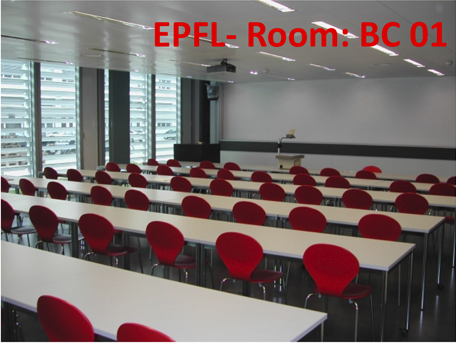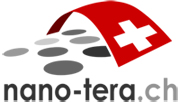Go to
Costas Spanos
 Professor and Chair of Electrical Engineering and Computer Sciences
Professor and Chair of Electrical Engineering and Computer Sciences
University of California at Berkeley, California, USA
Capturing, Modeling and Leveraging Process Variability in IC Design
IC variability has a hierarchical/hybrid character. Its hierarchy reflects the nature of production which can be viewed at the device, chip, field, wafer, and wafer-lot levels. Its hybrid nature encompasses spatial, deterministic and random components. Finally, its sources can be traced to interactions between layout components, modeling and manufacturing imperfections, as well as fundamental randomness at the atomistic scale. Consequently, capturing IC variability requires a concerted effort of test pattern design, data collection and TCAD simulations. This should lead to a complete, yet parsimonious statistical model, which can in turn provide suitable design guidance in order to ensure the optimal balance between yield and performance. This presentation will focus on the structure, characterization and use of such a comprehensive IC variability model, and it will include applications on compact transistor model characterization, custom corner generation, variability propagation at the circuit level, and yield-constrained IC performance optimization.
About the speaker:
Costas J. Spanos received the Electrical Engineering Diploma from the National Technical University of Athens, Greece in 1980 and the M.S. and Ph.D. degrees in Electrical and Computer Engineering from Carnegie Mellon University in 1981 and 1985, respectively. From 1985 to 1988 he was with the advanced Computer-Aided Design group of Digital Equipment Corporation, where he worked on the statistical characterization, simulation and diagnosis of VLSI processes.
In 1988 he joined the faculty at the department of Electrical Engineering and Computer Sciences of the University of California at Berkeley, where he is now a Professor and Chair of the department. He was the Director of the Berkeley Microfabrication Laboratory from 1994 to 2000, the Director of the Electronics Research Laboratory from 2004 to 2005, and the Associate Dean for Research in the College of Engineering from 2004 to 2008.
Professor Spanos has served in the technical committees of numerous conferences and was the editor of the IEEE Transactions on Semiconductor Manufacturing from 1991 to 1994. He has published more than 200 referred articles, has received several best paper awards and has co-authored a textbook in semiconductor manufacturing. His present research interests include the application of statistical analysis in the design and fabrication of integrated circuits, and the development and deployment of novel sensors and computer-aided techniques in semiconductor manufacturing. In 2000 he was elected Fellow of the Institute of Electrical and Electronic Engineers for contributions and leadership in semiconductor manufacturing.
Secondary navigation
- EPFL Workshop on Logic Synthesis and Emerging Technologies
- Luca Amaru
- Luca Benini
- Giovanni De Micheli
- Srini Devadas
- Antun Domic
- Rolf Drechsler
- Pierre-Emmanuel Gaillardon
- Jie-Hong Roland Jiang
- Akash Kumar
- Shahar Kvatinsky
- Yusuf Leblebici
- Shin-ichi Minato
- Alan Mishchenko
- Vijaykrishnan Narayanan
- Ian O'Connor
- Andre Inacio Reis
- Martin Roetteler
- Julien Ryckaert
- Mathias Soeken
- Christof Teuscher
- Zhiru Zhang
- Symposium on Emerging Trends in Computing
- Layout synthesis: A golden DA topic
- EPFL Workshop on Logic Synthesis & Verification
- Luca Amaru
- Luca Benini
- Robert Brayton
- Maciej Ciesielski
- Valentina Ciriani
- Jovanka Ciric-Vujkovic
- Jason Cong
- Jordi Cortadella
- Giovanni De Micheli
- Antun Domic
- Rolf Drechsler
- Henri Fraisse
- Paolo Ienne
- Viktor Kuncak
- Enrico Macii
- Igor Markov
- Steven M. Nowick
- Tsutomu Sasao
- Alena Simalatsar
- Leon Stok
- Dirk Stroobandt
- Tiziano Villa
- Symposium on Emerging Trends in Electronics
- Raul Camposano
- Anantha Chandrakasan
- Jo De Boeck
- Gerhard Fettweis
- Steve Furber
- Philippe Magarshack
- Takayasu Sakurai
- Alberto Sangiovanni-Vincentelli
- Ken Shepard
- VENUE
- Panel on Circuits in Emerging Nanotechnologies
- Panel on Emerging Methods of Computing
- Panel on The Role of Universities in the Emerging ICT World
- Panel on Design Challenges Ahead
- Panel on Alternative Use of Silicon
- Nano-Bio Technologies for Lab-on-Chip
- Functionality-Enhanced Devices Workshop
- More Moore: Designing Ultra-Complex System-on-Chips
- Design Technologies for a New Era
- Nanotechnology for Health
- Secure Systems Design
- Surface Treatments and Biochip Sensors
- Security/Privacy of IMDs
- Nanosystem Design and Variability
- Past Events Archive
Registration
Please note that paid registration is required for all participants of the workshop.
The full registration fee of 1200 € includes:
- Attendance to all lectures
- Printed and soft copy lecture notes
- Daily lunch with instructors
- All coffee breaks
- One social event (gala dinner)
Please click HERE to fill the online registration form.
Members of EPFL/ETHZ are offered a reduced rate for registration. EPFL/ETHZ members please click HERE to register.
For further information, you may contact Ms. Melinda Mischler by fax (+41 21 693 69 59) or e-mail (melinda.mischler@epfl.ch).


